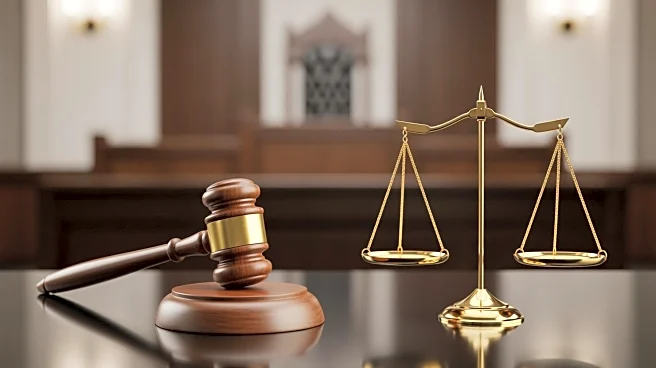What is the story about?
What's Happening?
The deployment of National Guard troops by President Trump has sparked discussions about the militarization of American cities. The Brennan Center for Justice's Elizabeth Goitein explains the conditions under which a president can invoke the Insurrection Act, a key legal framework for deploying military forces domestically. Democratic Senator Mark Kelly of Arizona discusses the government shutdown and the role of healthcare in negotiations between Democrats and Republicans. The conversation also touches on the broader implications of militarizing civilian spaces and the potential impact on civil liberties.
Why It's Important?
The use of National Guard troops in American cities raises important questions about the balance between national security and civil liberties. The Insurrection Act provides a legal basis for deploying military forces domestically, but its application can be controversial. The ongoing discussions highlight the need for clear guidelines and limitations on presidential authority in domestic military operations. This issue is significant for policymakers, legal experts, and civil society groups concerned about the potential erosion of democratic norms and the militarization of civilian spaces.
What's Next?
As debates continue over the use of National Guard troops, legal experts and policymakers may seek to clarify the conditions under which the Insurrection Act can be invoked. The outcome of these discussions could lead to legislative changes that define the limits of presidential authority in deploying military forces domestically. Civil society groups and political leaders are likely to continue advocating for transparency and accountability in the use of military forces in civilian settings.
Beyond the Headlines
The militarization of American cities has broader implications for civil liberties and democratic governance. The use of military forces in domestic settings could lead to long-term shifts in public policy and societal norms regarding security and governance. This development may also influence public perception of the federal government's role in managing civil unrest and maintaining public order.
















